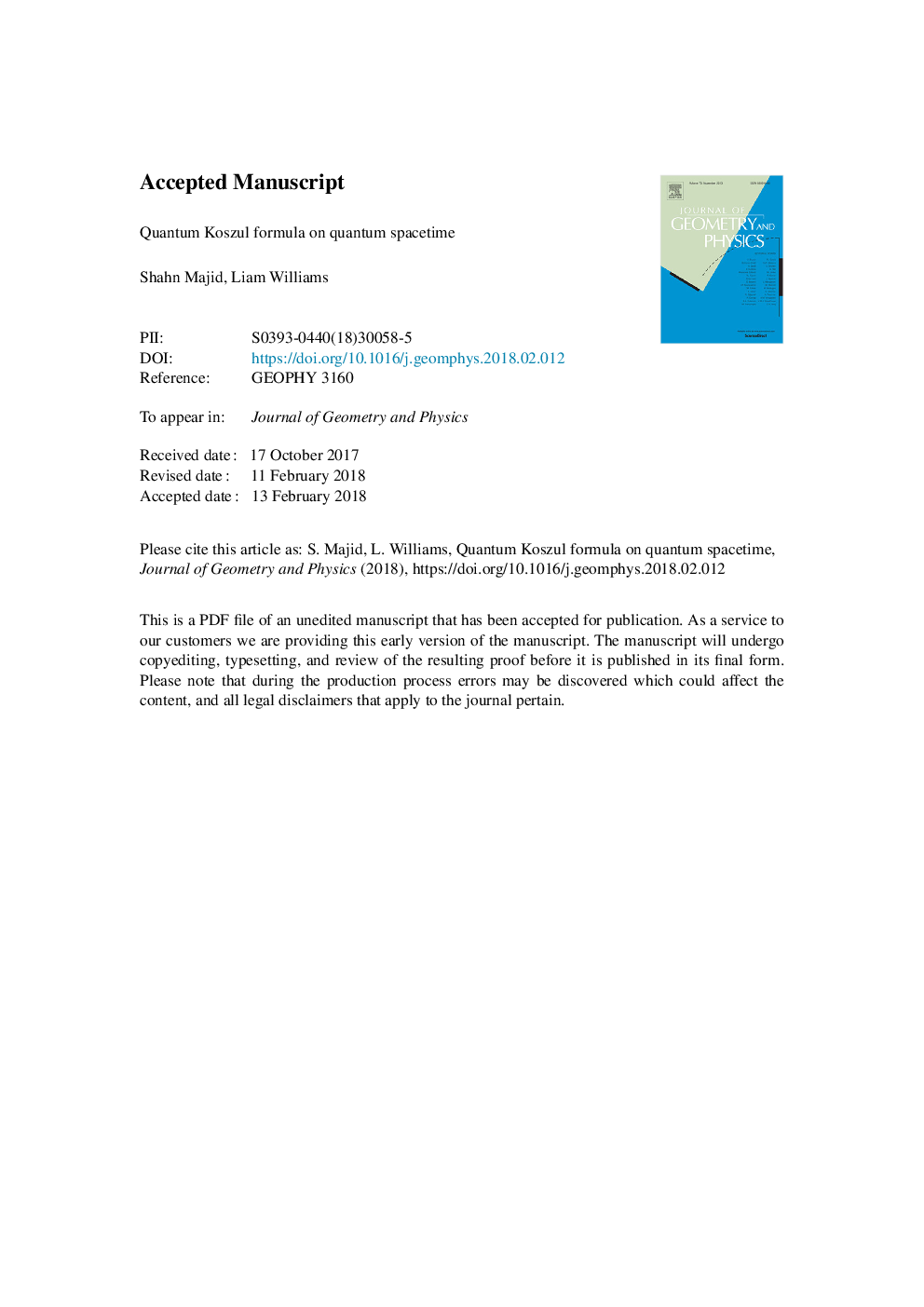| Article ID | Journal | Published Year | Pages | File Type |
|---|---|---|---|---|
| 8255480 | Journal of Geometry and Physics | 2018 | 41 Pages |
Abstract
Noncommutative or quantum Riemannian geometry has been proposed as an effective theory for aspects of quantum gravity. Here the metric is an invertible bimodule map Ω1âAΩ1âA where A is a possibly noncommutative or 'quantum' spacetime coordinate algebra and (Ω1,d) is a specified bimodule of 1-forms or 'differential calculus' over it. In this paper we explore the proposal of a 'quantum Koszul formula' in Majid [12] with initial data a degree â2 bilinear map ⥠on the full exterior algebra Ω obeying the 4-term relations (â1)|η|(Ïη)â¥Î¶+(Ïâ¥Î·)ζ=Ïâ¥(ηζ)+(â1)|Ï|+|η|Ï(ηâ¥Î¶),âÏ,η,ζâΩand a compatible degree â1 'codifferential' map δ. These provide a quantum metric, interior product and a canonical bimodule connection â on all degrees. The theory is also more general than classically in that we do not assume symmetry of the metric nor that δ is obtained from the metric. We solve and interpret the (δ,â¥) data on the bicrossproduct model quantum spacetime [r,t]=λr for its two standard choices of Ω. For the α-family calculus the construction includes the quantum Levi-Civita connection for a general quantum symmetric metric, while for the more standard β=1 calculus we find the quantum Levi-Civita connection for a quantum 'metric' that in the classical limit is antisymmetric. This suggests to consider quantum Riemannian and symplectic geometry on a more equal footing than is currently the case.
Keywords
Related Topics
Physical Sciences and Engineering
Mathematics
Mathematical Physics
Authors
Shahn Majid, Liam Williams,
